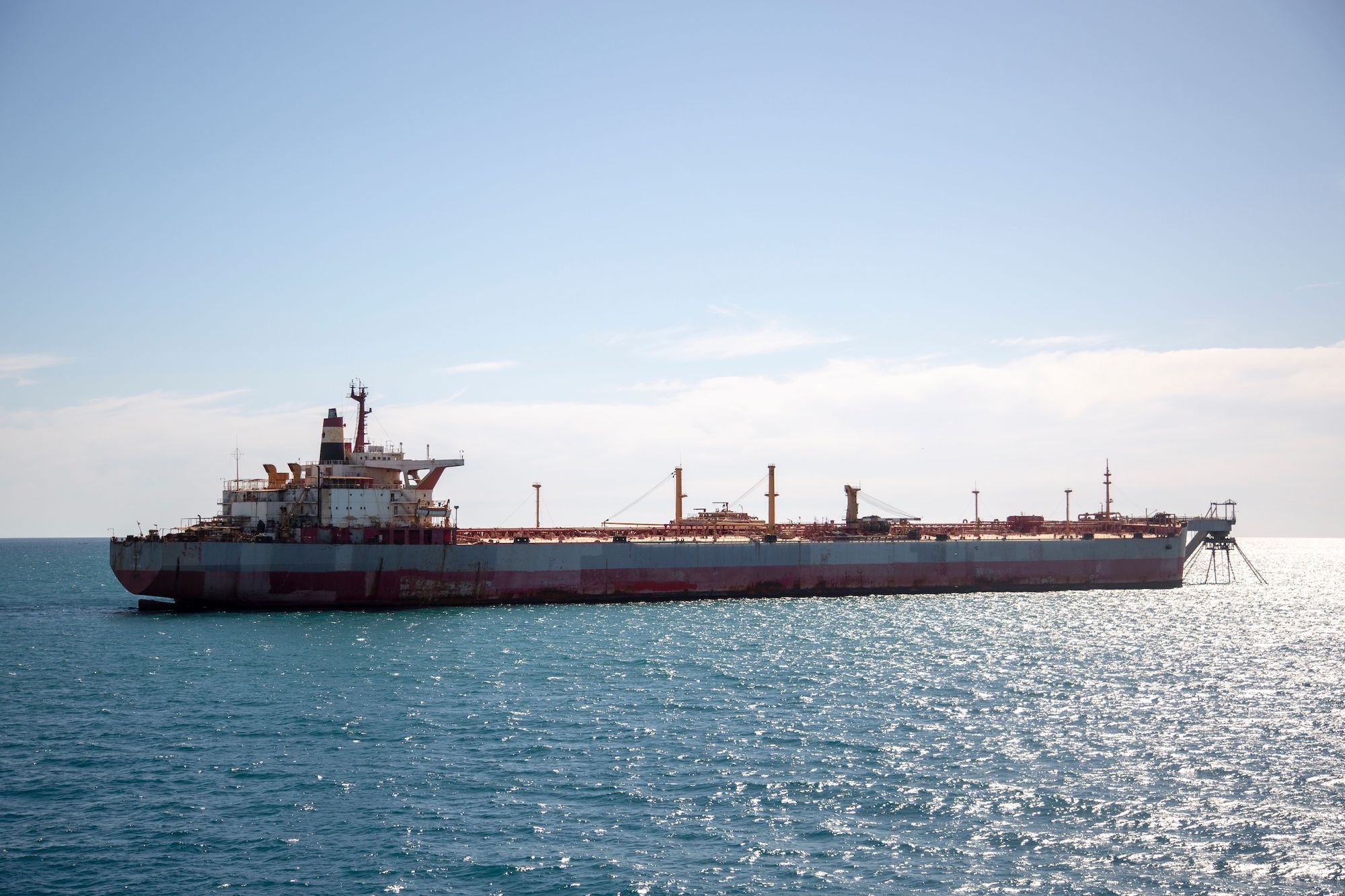Ships Fleeing The Red Sea Now Face Perilous African Weather
By Alex Longley and Paul Burkhardt (Bloomberg) –Ships sailing around the southern tip of Africa are wrestling with a bout of bad weather that has already run one vessel aground and...


The FSO Safer pictured May 30, 2023. Photo: UNDP
The operation to transfer over 1 million barrels of oil from the decaying FSO Safer in the Red Sea has reached a significant milestone after obtaining insurance coverage for the operation.
The binding insurance coverage was announced by the United Nations Development Programme (UNDP) on Monday.
Securing insurance is described as a pivotal milestone in allowing the ship-to-ship transfer (STS) to move forward as it reduces the financial risk associated with the operation for the various stakeholders involved.
“Insurance became a critical element of enabling this salvage operation to proceed,” said UNDP Administrator Achim Steiner. “Without it, the mission could not go forward. UNDP has been broadening and deepening its work with the global insurance community over recent years. That collaboration is delivering impact in many ways.”
The FSO Safer, anchored just a few miles off the Yemen coast, has been described as an ecological and humanitarian timebomb. The vessel, initially constructed in 1976 and later converted into a floating storage and offloading facility (FSO) for oil, is loaded with approximately 1.14 million barrels of light crude. Offloading and maintenance stopped in 2015 following the start of the war in Yemen, putting the vessel at serious risk of breaking up and spilling its content into the Red Sea.
The UN has warned that a major spill would devastate fishing communities on Yemen’s Red Sea coast, impacting the livelihoods of some 200,000 instantly. The cost of cleanup alone is estimated at $20 billion, while disruptions to shipping through the Bab al-Mandab strait to the Suez Canal could cost billions more in global trade losses every day.
Compounding the complexity of the situation, the FSO Safer sits in waters classified as “high risk” by the Joint War Committee in London, which determines insurance rates and exclusions for marine war underwriters worldwide.
The operation to remove oil from the FSO Safer involves transferring of the oil to a UN-owned VLCC tanker and scrapping of the Safer at a scrapyard.
After two years of groundwork and fundraising led by the UNDP, a SMIT salvage team arrived on site last month to prepare the FSO Safer for the STS operation. The tanker, Nautica, is standing by in Djibouti and is expected to travel to the site this month to receive the oil.
The UNDP said more than 100 individual underwriters were involved in issuing the highly specialized set of policies covering FSO Safer, the STS operation and the replacement vessel. Global insurance broker Howden, appointed as the UNDP’s broker, packaged, structured and syndicated the various risks across thirteen insurers in the Lloyd’s, London and P&I markets.
“The partnership with the insurance industry to de-risk the FSO Safer operation is a very visible demonstration of UNDP’s leadership in harnessing risk-sharing techniques to secure the SDGs in the most challenging of contexts,” said Jan Kellett, Head of the Insurance and Risk Finance Facility (IRFF). “However, more is needed. As the most recent edition of the Human Development Report emphasized, policies that focus on ‘investment, insurance and innovation’ are required to enable people to thrive in the face of unprecedented uncertainty. For this reason, UNDP is investing in the long-term transformation of insurance markets to the benefit of vulnerable communities and ecosystems.”
Join the gCaptain Club for curated content, insider opinions, and vibrant community discussions.


Join the 107,127 members that receive our newsletter.
Have a news tip? Let us know.
Access exclusive insights, engage in vibrant discussions, and gain perspectives from our CEO.
Sign Up




Maritime and offshore news trusted by our 107,127 members delivered daily straight to your inbox.



Essential news coupled with the finest maritime content sourced from across the globe.
Sign Up